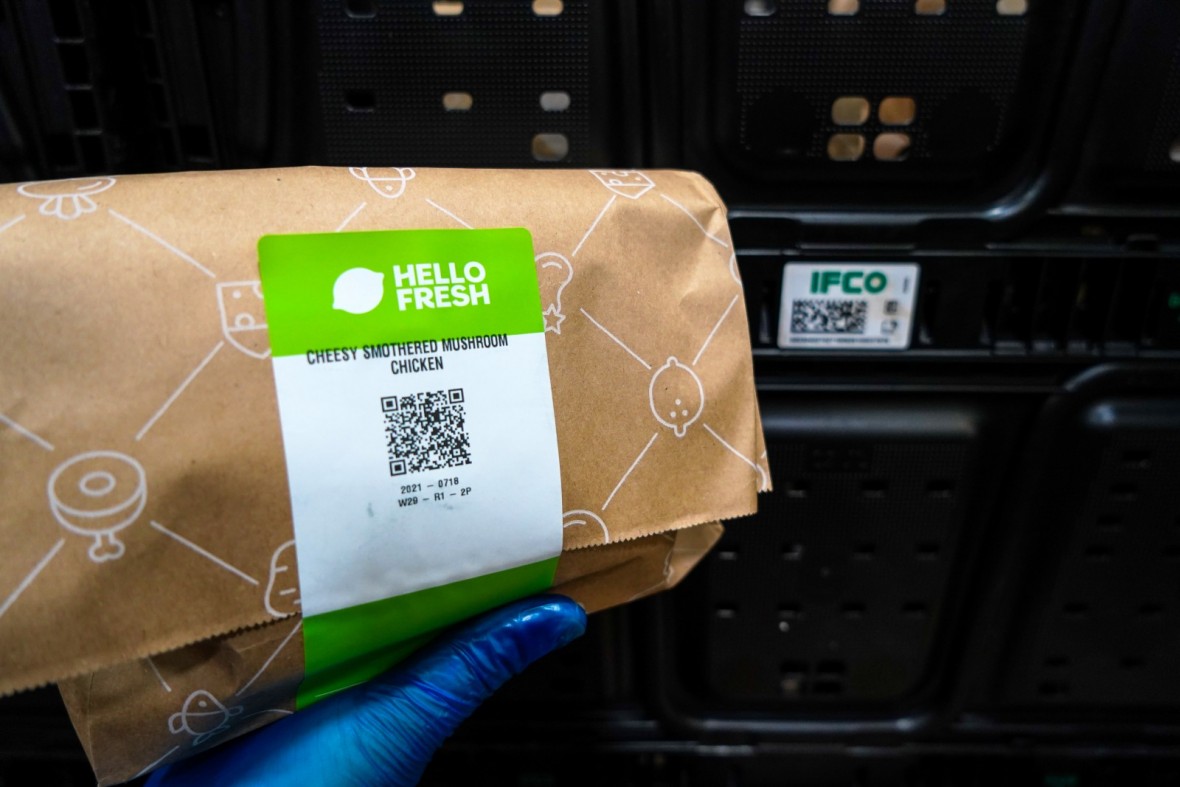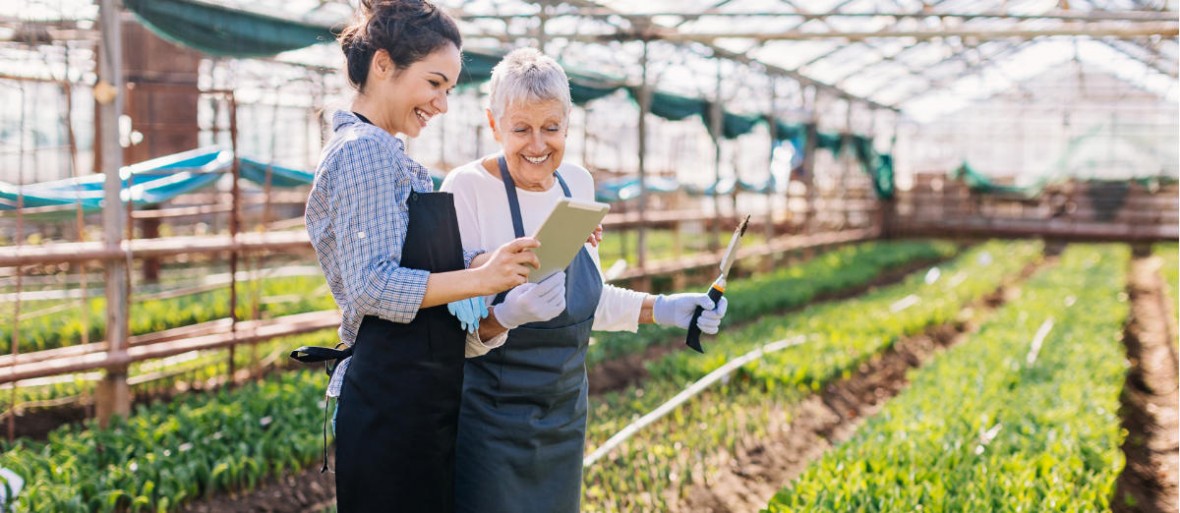The rapid rise of e-commerce food companies has been bolstered by new technologies, smartphones and a general acceptance of online shopping and home deliveries. From a supply chain perspective, such streamlined business models can be convenient and efficient. But can they also be sustainable from an environmental perspective? Jeff Yorzyk, Director of Sustainability at HelloFresh US, the world’s leading meal kit provider, outlines how IFCO expertise supports both supply chain efficiencies and key sustainability initiatives.

Quick to embrace technology, subscription models, and the convenience of home food delivery, Millennials and Gen X have been a deciding factor in the rapid growth of online food delivery services. And, according to the Global Online Food Delivery Services Market Report 2021, the growth phase is far from over. By 2025, the e-commerce food delivery market is expected to be worth over US$190 billion, up from US$115 billion in 2020. By some estimates, the meal kit sector alone could be worth as much as US $17.8 billion by 2027.
But it’s not all rosy. The food delivery landscape remains highly competitive and is defined by high operating costs and short shelf lives. To stand out, successful ventures need to provide nutritious and localized cuisine. And, thanks to increased awareness of the environmental impact of such shopping habits, companies that go all-in for transparency and sustainability are most likely to be rewarded with customer loyalty.
One such business is HelloFresh, the world’s leading meal kit provider in size, efficiency, and sustainability. IFCO is proud to provide sustainable packaging solutions for the company’s internal logistic processes that have helped HelloFresh meet a key milestone in its history: In 2020, it became the first meal kit delivery company to achieve carbon neutrality.
What started out as a German start-up on the Berlin tech scene in 2011, is now a worldwide success story in the e-commerce food business. The pandemic-fueled trend for home-cooking saw revenue rise to €3.75 billion in 2020, double the results of 2019. In 2020 alone, HelloFresh delivered more than 600 million meals to customers in 14 countries, and now employs over 11,000 people to reach its 5.3 million home chefs as far apart as Sydney, New York and London.
As Jeff Yorzyk, Director of Sustainability at HelloFresh US explains, for a business of such a scale, IFCO Reusable Packaging Containers (RPCs) are key components in the company’s drive for continued growth, supply chain efficiencies and sustainability.
"During the pandemic, the adaption of e-commerce increased and demand for home delivery of food rapidly accelerated – and that behavior is expected to continue," Yorzyk says. "Now we’re looking at a lot more optimizing around the meal kit supply chain through the use of data analytics, innovative sustainable packaging and automation."
"IFCO RPCs allow us to optimize our internal logistics operations," explains Yorzyk. Essentially, there are two stages to the HelloFresh production cycle. First, the individual recipes are packed or "kitted" in paper bags. These are staged in IFCO RPCs so they can be moved safely and smoothly to the production line, where the customer shipment boxes are then assembled.
On average, each customer may order two to five individual meal kit bags for each delivery, chosen from a menu of 25 or more recipes from one of three separate brands (HelloFresh, Every Plate and Green Chef).
"It’s therefore crucial that the IFCO RPCs support the staging of meal kits in a way that allows an easy, safe and efficient packing of the highly variable delivery boxes," says Yorzyk.
What’s more, the standard sizing and durability of the IFCO RPCs support automation within the industry. "And we are definitely pursuing automation, where it makes sense to do so," adds Yorzyk. "The IFCO RPC design will support us with this." The same is true for food safety.
"Food safety and quality is a top priority for HelloFresh" notes Yorzyk. "If we were using and reusing cardboard for our internal logistics, the potential for cross-contamination of spoiled goods would be much higher. The IFCO product management and pooling system helps us guarantee food quality and safety with great reliability. IFCO is a system partner who can maintain and sanitize the crates for us, so we don’t have to bother with those processes."
And they also help ensure product quality for the customer. "We’ve tried conventional boxes for our internal processes, but the paper bags get damaged, crushed and wrinkled during production," adds Yorzyk. "When the HelloFresh meal kits are safely cradled in the robust IFCO RPCs throughout the internal logistics process, they are better protected. The quality level of our fresh produce is maintained longer for a better consumer experience."
"The IFCO RPCs meet a core logistical challenge on the internal side, and they do it well," continues Yorzyk. "We’re moving so many things around all the time that if the IFCO RPCs were not collapsible and we had to stage them fully expanded, we would need bigger facilities."
The collapsible design and circular approach to pooling of IFCO RPCs brings many benefits. As Yorzyk explains, it allows the company to:

"The IFCO RPCs really help us in meeting our sustainability goals," says Yorzyk. "They maximize our ability to use our facilities more efficiently and help minimize food waste. They also help us to reduce the need to recycle cardboard. We will continue to rely on and look for ways to increase our use of IFCO RPCs. We’re always looking for ways to reduce the waste stream of cardboard that enters our supply chain."
"We think through our business from a life cycle perspective," Yorzyk explains. "This covers where our food is sourced from, how we handle it, how efficiently we bring it through the system, and how we get it to a customer. The benefits of our system really do help people lead a more sustainable lifestyle."
It’s this unique approach that has made HelloFresh the first global carbon-neutral meal kit company.
The streamlined direct-to-consumer business model has leveraged advanced analytics and machine learning to predict order volume of meal kits with increasingly higher accuracy. This tech-based approach with a focus on consumer demand has resulted in dramatic food waste and carbon emissions reductions. The company’s official environmental targets are bold and ambitious, even as it continues to expand.
According to the HelloFresh Sustainability Report 2020, the company’s goals and achievements are in line with the United Nation’s Sustainable Development Goals. With regards to food waste, for instance, HelloFresh has already maximized diversion from landfill substantially. In 2020, the company reported food waste of just 2.2 grams per meal served to its customers. They also announced a goal to reduce food waste per unit of revenue in 2022 by 50% from the 2019 level of 0.6g/Euro, meeting the United Nation’s Sustainable Development Goal 12.3 eight years ahead of time, and setting the standard for food loss.

“We are definitely pursuing automation, where it makes sense to do so. “The IFCO RPC design will support us with this”
"After years of pushing recycling programs, it’s clear that consumers are still confused on what can be recycled in their local pickup system, and frustrated with the variety between municipalities and even pickup companies." argues Yorzyk. "Packaging should do what it needs to do, no matter what a customer does. It should be recyclable, reusable, or compostable – or even all of these at once!"
As a result, HelloFresh has pioneered a number of innovative single-use packaging solutions, including water-based ice packs, and continues to support research and development in this area. The goal is the continuous improvement of packaging solutions and to cut down on the need for excess packaging, while maintaining the high degree of food safety and quality that is critical to customer satisfaction.
As Yorzyk points out, with consumers, packaging once discarded has an uncontrolled end of life and any single-use packaging needs to be designed so it will never become a wildlife or environmental hazard.
"In a commercial capacity, where we can control the use, capture, and reuse of packaging more tightly, durable items that can be maintained and sanitized really start to shine," he believes. "Where we can utilize reusables, it makes sense to use more durable items such as the IFCO crates and pooling system."
HelloFresh clearly has a core competency in creating meal kits and delighting health-savvy and eco-conscious consumers with their recipes, which has made them the largest operator in the e-commerce market from a meal-kit perspective. As Yorzyk makes clear, the growth and size that HelloFresh has achieved in the space of ten years is due to the strong focus on their strengths.

"Maintaining containers, sorting them, sanitizing them, monitoring them for issues, and deciding when they need to be repaired or recycled, that is not a core competency we would want to internalize. It’s not one that makes sense when we’re such a high growth business," Yorzyk adds. "Knowing that IFCO is tracking and maintaining the RPCs that we use in very high volumes inside the facility allows us to focus on our true business priorities. And that makes the IFCO model very effective."
"In IFCO, we have a trusted partner who can reliably provide durable, space saving crates and get them into and out of our system rapidly when needed," highlights Yorzyk.
The modern approach of pioneers like HelloFresh, who take responsibility for the environment and promote sustainable lifestyles, is likely to resonate most with today’s informed consumers. Putting efficiency and sustainability at the core of the business will be key to success, as will investing in data-driven customer service, smart automation, and innovative sustainable packaging solutions."HelloFresh is transforming the food industry," believes Yorzyk. "We want to change the way people eat forever, and to do so as sustainably as possible. We still have a ways to go, and the global sustainability agenda has come of age. That makes me very optimistic."
By loading the LinkedIn Follow Plugin, you agree to the Privacy Policy of LinkedIn.
Stay up to date
Want the latest fresh food packaging industry knowledge delivered straight to your inbox? Subscribe to our newsletter and get the latest news, trends, articles and more!
